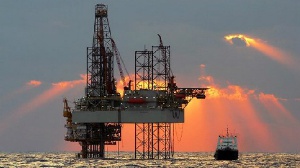 Oil has been climbing in recent weeks amid a broad advance across commodity markets
Oil has been climbing in recent weeks amid a broad advance across commodity markets
Oil climbed toward $66 a barrel on optimism that the resumption of economic activity in the U.S. and Europe will underpin demand.
West Texas Intermediate futures gained 1.8%, reaching their highest since mid-March, while gasoline futures rose as much as 2.8%.
The European Union plans to ease curbs for vaccinated travelers this summer, while states around the New York region are set to relax capacity restrictions. That’s offsetting concerns about weaker oil consumption in parts of Asia, including key importer India, where COVID-19 remains rampant.
Oil has been climbing in recent weeks -- amid a broad advance across commodity markets -- as investors bet that the rollout of vaccines will permit a return to pre-pandemic conditions.
Reflecting that rebound, U.S. Federal Reserve Chair Jerome Powell said on Monday that America’s economic recovery is “making real progress,” although he cautioned that the gains have been uneven.
“Europe is about to join the U.S. in approaching some semblance of normality this summer, and this has overshadowed the Covid-19 crisis in India,” said Kevin Solomon, an energy economics analyst at brokerage StoneX Group. “The reopening theme is gaining momentum.”
Crude’s gains on Tuesday were outpaced by those in petroleum products, most notably gasoline. In the U.S., profits to produce the fuel were at the highest since April 2020 as optimism grows that a reopening of the economy will boost demand for the fuel.
There are already signs in several countries that drivers are getting back in their cars, and retail prices in the U.S. are already at the highest since October 2018.
Still, not everywhere is positive. Among the signs of weaker energy demand in India, oil shipments loaded for the nation’s public-sector refiners hit a seven-month low in April, according to analytics firm Vortexa.
That slowdown marked “one of the first repercussions” of the new COVID-19 wave, it wrote in a report.